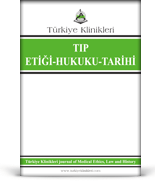Objective: Dentistry students have many academic duties and responsibilities that they must perform and succeed during their university life. Successful and productive learning is closely related to academic motivation and academic self-efficacy. However, in order to be a good dentist, dental students must be successful in theoretical and clinical fields. The aim of this study was to investigate the levels of academic motivation and academic self-efficacy beliefs of dentistry students and to evaluate the effect of these factors on academic achievement. Material and Methods: This study was conducted on 346 students studying at Gaziantep University Faculty of Dentistry in 2018-2019 academic year. The data of the study was collected by using three measurement tools: Descriptive Characteristics form, Academic Motivation Scale and Academic Self-efficacy Scale. The obtained data were evaluated by using SPSS 22 program, Students' t test, ANOVA test, Kruskal-Wallis test and correlation analysis. Results: The students' self-efficacy beliefs (16.8±3.8), total academic motivation level (66.9±12.3) and the sub-dimensions; selfexceeding (23.2±4.2), discovery (24.3±4.9) and use of knowledge (19.3±4.8) mean scores were high, and there was a negative correlation between academic motivation and self-efficacy (p <0.05). In addition, there was a positive correlation between academic motivation and academic achievement (p <0.05). Conclusion: The students can be more successful in education if their academic motivation is supported. In addition, it should be examined how these features should be gained in longitudinal prospective studies.
Keywords: Academic motivation; academic self-efficacy; dental students
Amaç: Diş hekimliği öğrencilerinin üniversite hayatı boyunca yerine getirmeleri ve başarılı olmaları gereken birçok akademik görevleri ve sorumlulukları bulunmaktadır. Öğrencilerin başarılı ve verimli bir öğrenim hayatı geçirmeleri, akademik güdülenme ve akademik öz yeterlik seviyeleri ile yakından ilişkilidir. Bununla birlikte diş hekimliği öğrencilerinin iyi bir hekim olabilmeleri için teorik ve klinik alanlarda başarılı olmaları zorunludur. Bu çalışma, diş hekimliği öğrencilerinin akademik güdülenme ve akademik öz yeterlik inancı düzeylerinin incelenmesi ve bu faktörlerin akademik başarı üzerine etkisinin değerlendirilmesi amacıyla yapılmıştır. Gereç ve Yöntemler: Bu çalışma, 2018-2019 eğitim-öğretim döneminde Gaziantep Üniversitesi Diş Hekimliği Fakültesi'nde öğrenim gören 346 öğrenci üzerinde yürütülmüştür. Çalışmanın verileri, Tanımlayıcı Özellikler Formu, Akademik Güdülenme Ölçeği ve Akademik Öz Yeterlik Ölçeği olmak üzere üç ölçme aracı kullanılarak toplanmıştır. Elde edilen veriler SPSS 22 programı kullanılarak, Students' t testi, ANOVA testi, Kruskal-Wallis testi ve korelasyon analizleri ile değerlendirilmiştir. Bulgular: Öğrencilerin akademik öz-yeterlik inançları (16,8±3,8), akademik güdülenme düzeyi toplam puan ortalaması (66,9±12,3) ile alt boyutlarından kendini aşma (23,2±4,2), keşif (24,3±4,9), bilgiyi kullanma (19,3±4,8) puan ortalamalarının yüksek düzeyde olduğu ve akademik güdülenme ile akademik öz yeterlik arasında negatif anlamlı ilişki olduğu saptanmıştır (p<0,05). Bunun yanı sıra akademik güdülenme ile akademik başarı arasında pozitif korelasyon görülmüştür (p<0,05). Sonuç: Öğrencilerin akademik güdülenmeleri desteklenirse eğitimde daha başarılı olabilecekleri söylenebilir. Ayrıca ileriye dönük longitudinal çalışmalarda bu özelliklerin nasıl kazandırılması gerektiği irdelenmelidir.
Anahtar Kelimeler: Akademik güdülenme; akademik öz yeterlik; diş hekimliği öğrencileri
- Kauchak D, Eggen P. Educational Psychology: Windows on Classrooms. Prentice Hall; 1969.
- Klassen RM, Klassen JRL. Self-efficacy beliefs of medical students: a critical review. Perspect Med Educ. 2018;7(2):76-82. [Crossref] [PubMed] [PMC]
- Kaplan M. Academic procrastination behavior in nursing students: The role of academic empowerment, academic self-efficacy and academic loading styles. Gaziantep University. 2017.
- Bozanoğlu İ. [Academic motivation scale: development, reliability, validity]. Ankara Univ Egit Bilim Fak Derg. 2004;37(2):83-98.
- Schwarzer R, Jerusalem M. Generalized Self-efficacy Scale. Meas Heal Psychol A User's Portfolio; 1995. [Crossref]
- Yilmaz M, Gürçay D, Ekici G. [Adaptation of the Academic Self-Efficacy Scale to Turkish]. H.U. Journal of Education. 2007;33:253-9.
- Hakan K, Münire E. Academic motivation: gender, domain and grade differences. Procedia Soc Behav Sci. 2014;143:708-15. [Crossref]
- Vallerand RJ, Blssonnette R. Intrinsic, extrinsic, and amotivational styles as predictors of behavior: a prospective study. J Pers. 1992. [Crossref]
- Burger C, Raelin JA, Reisberl RM, Baile MB, Whitman D. Self-efficacy in female and male undergraduate engineering students: comparisons among four institutions. 2010 ASEE Southeast Section Conference; 2010.
- Bryant SK. Self-efficacy sources and academic motivation: a qualitative study of 10th graders. Electron Theses Disertations; 2017. p.165.
- Coleman AA. The Effects of Pre-Collegiate Academic Outreach Programs on First-Year Financial Aid Attainment, Academic Achievement and Persistence. ProQuest LLC U6 - ctx_ver=Z39.88-2004&ctx_enc=info%3Aofi%2Fenc%3AUTF-8&rfr_id=info:sid/summon.serialssolutions.com&rft_val_fmt=info:ofi/fmt:kev:mtx:dissertation&rft.genre=dissertation&rft.title=The+Effects+of+Pre-Collegiate+Academic+Outreach+Programs+on+. 2011.
- Sheard M. Hardiness commitment, gender, and age differentiate university academic performance. Br J Educ Psychol. 2009;79(Pt 1):189-204 [Crossref] [PubMed]
- Zierold KM, Garman S, Anderson HA. A comparison of school performance and behaviors among working and nonworking high school students. Fam Community Health. 2005;28(3):214-24. [Crossref] [PubMed]
- Mounsey R, Vandehey M, Diekhoff G. Working and non-working university students: anxiety, depression, and grade point average. Coll Stud J. 2013;47(2):379-89.
- Çeliköz N. Basic factors that affect general academic motivation levels of candidate preschool teachers. Procedia Soc Behav Sci. 2009;1(1):1357-65. [Crossref]
- Multon KD, Brown SD, Lent RW. Relation of self-efficacy beliefs to academic outcomes: a meta-analytic investigation. J Couns Psychol. 1991;38(1):30-8. [Crossref]
- Ersanlı CY. The relationship between students' academic self-efficacy and language learning motivation: a study of 8th graders. Procedia Soc Behav Sci. 2015;199:472-8. [Crossref]
- Amrai K, Motlagh SE, Zalani HA, Parhon H. The relationship between academic motivation and academic achievement students. Procedia Soc Behav Sci. 2011;15:399-402. [Crossref]
- Pajares F. Self-efficacy beliefs in academic settings. Rev Educ Res. 1996;66(4):543-78. [Crossref]
- Jackson JW. Enhancing self-efficacy and learning performance. J Exp Educ. 2002;70(3):243-54. [Crossref]







.: Process List